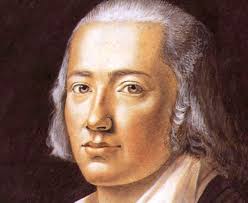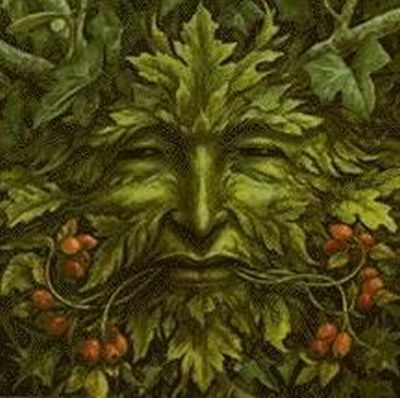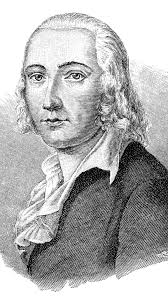
“I grew up in the arms of the gods”
Friedrich Hölderlin (1770-1843) was a poet and philosopher who played an important role in the development of German Romanticism.
His work helped fuel organic radical opposition to industrial capitalism in German-speaking Europe before the First World War.
Hanz Kohn recalled: “During the first decade of the 20th century, there was a reawakened interest in Romanticism. Novalis and especially Hölderlin were the most read ‘classics’ in our youth.
“For the new generation, specialised and mechanised science seemed cold, lifeless and sterile. We wanted to reach down to the obscure and primordial sources (Urquellen) of being. Mysticism was the fountain of youth in which religious nostalgia of the age immersed itself”. (1)
In particular, Hölderlin was an important inspiration behind the powerful and poetic anarchism of Gustav Landauer. (2)
Along with Novalis, Friedrich Schegel, August Hülsen and others, Hölderlin forged the holistic absolute idealism which surfaced in Jena in the 1790s and was later developed by Friedrich Schelling and Georg Hegel.
This challenged self-consciousness as the self-evident starting point of philosophy and proposed instead that the first principle was the universe itself. Our thinking and our existence, our experience of subject and object, were all contained within the universal whole and were merely particular aspects of its all-embracing reality.

Frederick Beiser writes: “Hölderlin stresses how both the subjective and objective become what they are only through the other. The objective realizes itself as the subjective because nature reaches its perfection in art and human consciousness, which is its highest degree of organization and development.
“Conversely, the subjective realizes itself as the objective because art attains its perfection in becoming nature, and because human activity realizes its final end only in becoming one again with all of nature”. (3)
From Hölderlin’s deeply organic perspective, beauty was not simply a pleasurable appearance, and still less a symbol of goodness, but “nothing less than the harmonic structure of reality itself”. (4)
Although he was greatly influenced by Baruch Spinoza’s non-dualist conception of the universe, Hölderlin increasingly found it sterile and mechanistic and developed his own more poetic, vitalistic, vision.
As Beiser observes: “If the universe is animate, if it is one vast organism, then it should be more than mere oneness; it should be instead oneness separating itself, for organic development involves differentiation, a process by which an inchoate, indeterminate unity becomes an organized and determinate multiplicity”. (5)
 Nature was thus something living, evolving, unknowable and inseparable from the human body and mind, he explains.
Nature was thus something living, evolving, unknowable and inseparable from the human body and mind, he explains.
“The identity of the self depends on the whole of nature, which it can know but imperfectly. Deep within myself there lie the mysterious energies and powers of nature itself, which I cannot entirely know or control”. (6)
Not only did Hölderlin often express his philosophy through poetry, but this approach was itself, in fact, part of his philosophy.
Writes Beiser: “To establish the primacy of poetry, Hölderlin adopted a bold strategy: he would show how the discursive procedures of philosophy ultimately pre-suppose an intuitive awareness of the whole, which is accessible only to aesthetic sense”. (7)
Here, Hölderlin faced the dilemma of how to express this intuitive awareness while not destroying it by trying to reduce it to mere words. He decided to use the language of myth and religion because “all religion is in its essence poetic”. (8)
Trees were my teachers
Melodious trees
And I learned to love
Among flowers
I grew up in the arms of the gods. (9)
Video link: Friedrich Hölderlin with David Constantine (6 mins)

1. Hanz Kohn, Martin Buber, 1930, pp. 60-65, cit. Michael Löwy, Rédemption et utopie: le judaïsme libertaire en Europe centrale (Paris: Éditions du Sandre, 2009), p. 200.
2. Russell Berman and Tim Luke, Introduction, Gustav Landauer, For Socialism, trans. by David J. Parent (St Louis: Telos Press, 1978), pp. 8-9.
3. Frederick Beiser, German Idealism: The Struggle Against Subjectivism (Cambridge, Massachusetts: Harvard University Press, 2008), p. 400.
4. Beiser, p. 397.
5. Beiser, p. 399.
6. Beiser, p. 358.
7. Beiser, p. 378.
8. Friedrich Hölderlin, Sämtliche Werke. Grosse Stuttgarter Ausgabe, ed. F. Beißner and A. Beck (Stuttgart: Cotta Nachfolger, 1943-1985), IV, p. 281, cit. Beiser, p. 397.
9. Friedrich Hölderlin, ‘Da ich ein Knabe war…’, Friedrich Hölderlin: Selected Poems, trans. by David Constantine (Newcastle: Bloodaxe Books, 1996).
